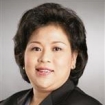Indonesia
Understanding the Indonesia customs and trade environment
Indonesia is ASEAN’s largest country and offers significant opportunities from both a production and consumption perspective. Its geographic structure presents some serious challenges though, which are reflected in a highly decentralised interpretation and implementation of customs and trade rules and regulations. Recent advancements in reducing corruption are having a substantial impact on customs and trade compliance management expectations by the authorities.
Indonesia has been hitting the international press headlines for one of the most active countries in resorting to alleged protectionism, through the introduction or strengthening of a number of non-tariff barriers. Frequent, quick and often unpredictable new rules pose unprecedented challenges for importers and exporters that require high levels of agility and knowledge.
Customs duties in Indonesia vary from 0% to 170%, although most imported items will attract duties in the range of 0% to 15%. Various customs facilities are available, including duty exemptions and preferential duties for most imported goods of ASEAN Origin. Therefore ASEAN origin certification is often critical.
Indonesia imposes import restrictions on certain products including alcoholic drinks, ammunition, and hazardous waste. A Special Importer Identification Number (NPIK) also needs to be obtained to import certain items, including textile products, shoes, and electronic goods. A specific challenge in Indonesia is the requirement to establish separate legal entities for the import for manufacturing or trading purposes respectively.
The Directorate General of Customs and Excise is responsible for enforcing customs and related laws, and for collecting customs duties and other taxes on imported goods.
Companies often regard Customs matters as low-key management issues, with little or no monitoring being conducted until significant liabilities have accumulated. Duty and tax liabilities can build up alarmingly quickly, with significant additional exposure to administrative penalties of up to 500%.
In addition, we forecast more aggressive and better targeted Customs audits (sometimes in the form of joint audits with Tax authorities) as part of concerted action by the Indonesian Government to increase revenues. Larger companies, and especially multi-national corporations, are at particular risk of such increased Customs scrutiny.
- Our services
- Case studies
Our services
The customs and trade team of PwC Indonesia provide the following solutions that specifically address the challenges facing importers and exporters in Indonesia
- Advice in relation to import and trade licensing requirements in Indonesia
- Review of proposed and current supply chain planning in Indonesia from a customs, excise and trade regulatory perspective
- Advice on optimised use of customs incentives including assistance in obtaining exemption approvals. Available incentives include, but are not limited to:
- Import facility for export purpose (known as KITE/Kemudahan Impor Tujuan Ekspor) that provides import duty exemption for materials used for the production of export goods
- Import duty exemptions for newly established or expanding foreign capital investment companies manufacturing or operating in selected service industries including construction and mining
- Bonded Zones, Bonded Warehouses and Free Trade Zones that in general provide import duty and import tax exemptions subject to certain conditions
- Temporary import with import duty exemptions and/or reliefs
- Pre-clearance import with import duty and import tax deferment
- Import incentives for specific industries such as power generation, automotive and components
- Assist companies with their customs and trade compliance levels by conducting on-site reviews
- Advise on the best course of action with respect to disputes such as an objection to a Customs department decision, appeals to the Tax Court, including strategy advice and leveraging our experience of previous cases
Case studies
Innovative solution for a Bonded Zone company to retain its Bonded Zone concession
WMS Indonesia was initially asked to assist in a Bonded Zone closure process since our client could not meet the new Bonded Zone requirement of a limit of 25% local sales introduced in 2012. The company’s local sales were typically in the range of 40% to 45%.
How we helped
We proposed to conduct a study on the possibility to continue enjoying the Bonded Zone concession rather than to cancel the Bonded Zone license.
The study identified an opportunity for the company to continue the Bonded Zone concession for a further two years on the basis that the company had been established before the new Bonded Zone regulation issued and the products were intermediate goods that required further processing by its customers (business to business transaction).
Benefit for the client
Customs issued an approval for the company to continue their Bonded Zone concession for a further two years with a local sales quota of 60% of the current production value that gave the client cash flow benefits with respect of their local sales.
We continued to help the company closely monitor the development of Bonded Zone regulations, specifically on the local sales quota requirement.
Proactive action in stopping the issuance of customs value assessments
Our client continuously received customs valuation assessments from Indonesia Customs. In addition to assisting with the appeal process against the assessments, WMS prepared a position paper to support the client's valuation methodology to deter future assessments.
How we helped
We carried out a detailed analysis that identified:
- The company had strong grounds to justify its customs valuation methodology by applying the "other reasonable means" method, a variation of the deductive method of customs valuation
- We facilitated discussion with Indonesia Customs by using our contacts which were open for discussions and responsive.
Benefit for the client
- Customs accepted the transaction value provided supporting documents were adequate to support for its use
- Customs stopped issuing customs value assessments
- The client has successfully appealed previous assessments.
Contact us

Enna Budiman
Partner, Indonesia, PwC Asia Pacific Customs and Trade
Tel: +6221 521 2901 Ext. 90734

